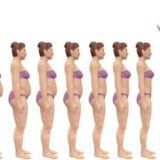Staying Active: Exercise Regimens for Aging Gracefully
As the sands of time shift and the years roll by, the pursuit of graceful aging becomes an aspiration shared by many. While genetics undoubtedly play a role in the aging process, it’s far from the sole determining factor. The choices we make in our daily lives, especially when it comes to staying active and maintaining a healthy weight, can significantly influence how we age.
This guide will review the realm of exercise regimens tailored specifically to promote healthy aging and weight management, two pillars of aging gracefully.
Aging Gracefully
Aging gracefully is not about trying to turn back the clock, but rather about embracing the present and the future with vitality and well-being. It’s about maintaining your independence, vitality, and the ability to engage in the activities you love for as long as possible. This can all be achieved through a combination of healthy habits, and one of the most crucial among them is staying active.
Exercise is often hailed as the elixir of life, and for a good reason. Regular physical activity is like a fountain of youth, capable of mitigating the effects of time on the body and mind. It offers a multitude of benefits that are particularly valuable as we age, such as enhanced cardiovascular health, improved bone density, increased muscle strength, and the preservation of cognitive function.
One of the key aspects we will explore in this article is the vital connection between exercise, healthy aging, and weight management. While many people focus on staying active to remain fit and agile, the relationship between exercise and weight is equally important. Maintaining a healthy weight as you age can significantly reduce the risk of chronic diseases and enhance your overall quality of life.
The Benefits of Exercise for Healthy Aging
Aging is an inevitable part of life, but how we age is not set in stone. The choices we make, particularly when it comes to staying active, can profoundly impact the aging process. Exercise is a powerful tool that can help you not only age gracefully but also enjoy a higher quality of life in your golden years.
Here are some benefits of exercise for healthy aging.
- Physical Health: Regular exercise is a cornerstone of maintaining good physical health as you age. It enhances cardiovascular fitness, which reduces the risk of heart disease, stroke, and high blood pressure. Weight-bearing exercises can also improve bone density, helping to prevent osteoporosis, a common concern for older adults.
- Muscle Strength and Mobility: As we age, muscle mass tends to decrease, leading to a loss of strength and mobility. Exercise, particularly resistance training, can help counteract this decline. Strong muscles are not only essential for daily activities but also reduce the risk of falls and injuries.
- Mental Well-being: The benefits of exercise extend to mental health as well. Physical activity releases endorphins, those “feel-good” hormones that can reduce symptoms of depression and anxiety. It can also enhance cognitive function, memory, and overall brain health.
- Weight Management: Maintaining a healthy weight is a significant component of aging gracefully. Regular exercise can help you manage your weight by increasing your metabolism, burning calories, and preserving lean muscle mass. It also aids in maintaining a balanced body composition.
- Chronic Disease Prevention: Many chronic diseases, such as type 2 diabetes and certain types of cancer, become more common as we age. Exercise can significantly reduce the risk of developing these conditions by improving insulin sensitivity and reducing inflammation in the body.
- Quality of Life: Perhaps one of the most important benefits of exercise is its impact on the overall quality of life. Staying active allows you to maintain your independence, engage in the activities you love, and enjoy a higher level of vitality. It fosters a sense of well-being and the freedom to explore new adventures, even in your later years.
Incorporating regular physical activity into your daily routine is a powerful step toward embracing the journey of healthy aging. The benefits extend far beyond the physical realm, influencing your mental and emotional well-being and enhancing your ability to lead a fulfilling, independent life.
Tailored Exercise Routines for Aging Gracefully
As you embark on the path of healthy aging, it’s essential to understand that not all exercise regimens are created equal, and your fitness routine should be tailored to meet the unique needs and challenges that come with advancing age.
Let’s review exercise routines specifically designed to support graceful aging while maintaining a focus on weight management.
- Low-Impact Exercises: Low-impact activities are a fantastic choice for older adults as they reduce stress on the joints and minimize the risk of injury. These exercises include walking, swimming, cycling, and using elliptical machines. Low-impact workouts provide an excellent cardiovascular workout without the jarring impact on the joints.
- Flexibility and Balance Training: As we age, balance and flexibility tend to deteriorate. Incorporating exercises like yoga, tai chi, or stretching routines can help improve balance and maintain flexibility. Enhanced balance not only reduces the risk of falls but also allows for a broader range of activities in your daily life.
- Strength Training: Strength training is crucial for preserving and building muscle mass, which naturally declines with age. You don’t need to become a bodybuilder, but incorporating weightlifting, resistance bands, or bodyweight exercises can significantly benefit your overall strength and functional fitness.
- Cardiovascular Exercise: Aerobic exercises such as brisk walking, swimming, or cycling improve heart health, boost lung capacity, and help maintain a healthy weight. These activities enhance your endurance and stamina, which are essential for enjoying an active lifestyle.
- Customized Exercise Plan: Consider working with a fitness professional or physical therapist who specializes in aging-related fitness. They can help you design a personalized exercise plan that takes into account your specific needs, any existing health conditions, and your goals.
It’s important to note that one of the keys to success in maintaining an exercise routine is consistency. While it’s essential to challenge yourself, it’s equally important to listen to your body and make modifications as needed. Warm-up and cool-down exercises are crucial, as are regular hydration and proper nutrition to support your exercise efforts.
In the pursuit of healthy aging and effective weight management, it’s not just about the type of exercises you do but also the frequency and dedication with which you engage in them. As you age gracefully, your fitness regimen should adapt and evolve with you, ensuring that you remain vital, mobile, and able to embrace all that life has to offer.
Weight Management Strategies for Seniors
Maintaining a healthy weight is a vital component of aging gracefully. As we age, our metabolism naturally slows down, and lifestyle factors can lead to weight gain. However, with a thoughtful approach, it’s entirely possible to manage your weight effectively, supporting your journey to healthy aging.
Here are weight management strategies that align with your quest for graceful aging.
- Balanced Diet: A key to weight management is a balanced diet. As you age, your nutritional needs may change, but the importance of a diet rich in whole foods, fruits, vegetables, lean proteins, and whole grains remains constant. Ensure that your diet is diverse, incorporating a variety of nutrients essential for overall health.
- Portion Control: With age, you may find that your appetite changes, and you may not need as many calories as you once did. Pay attention to portion sizes and aim for mindful eating to prevent overindulgence. Eating slowly and savoring your food can help you recognize when you’re full.
- Hydration: Staying hydrated is essential for weight management and overall health. Often, our bodies confuse thirst with hunger. Drinking enough water can help prevent unnecessary snacking and overeating.
- Regular Meals: Consistency in meal timing can help regulate your metabolism and prevent energy slumps. Aim to eat regular, balanced meals throughout the day to maintain steady energy levels and reduce the likelihood of reaching for unhealthy snacks.
- Exercise: We’ve already discussed the significance of exercise in aging gracefully and its role in maintaining a healthy weight. Regular physical activity not only burns calories but also boosts your metabolism, making it easier to manage your weight.
- Sleep: Adequate, high-quality sleep is essential for weight management. Poor sleep can disrupt hunger and satiety hormones, leading to weight gain. Aim for 7-9 hours of restful sleep each night.
- Stress Management: Chronic stress can lead to overeating and weight gain. Employ stress management techniques such as mindfulness, meditation, or hobbies that bring you joy to help keep stress in check.
- Consult with a Professional: If you’re struggling with weight management, consider consulting with a registered dietitian or a healthcare provider. They can help you create a personalized plan and address any underlying issues that may be impacting your ability to maintain a healthy weight.
It’s important to approach weight management with patience and a long-term perspective. Healthy aging is about sustainable, gradual changes that support your overall well-being. By incorporating these strategies into your life, you can maintain a healthy weight while enjoying the numerous benefits of graceful aging, ensuring that you age not just gracefully but also vibrantly.
Overcoming Common Barriers
Embracing a lifestyle of regular exercise and effective weight management as part of your journey towards healthy aging is undoubtedly a commendable goal. However, it’s important to acknowledge that several common barriers can impede your progress.
Let’s review these challenges and provide strategies to help you overcome them.
- Joint Pain and Mobility Issues: Many older adults may face joint pain or limited mobility. In such cases, it’s crucial to choose exercises that are gentle on the joints. Low-impact activities like swimming, water aerobics, or cycling can provide an excellent workout without causing undue stress on your joints.
- Lack of Motivation: Staying motivated to exercise can be challenging at any age. Set achievable, specific goals for yourself, and consider finding an exercise buddy to keep you accountable. Joining a fitness class or group can also provide the necessary motivation and social support.
- Time Constraints: Busy schedules can often get in the way of regular exercise. However, it’s essential to prioritize your health. Even short, consistent workouts can yield significant benefits. Aim for at least 150 minutes of moderate-intensity exercise per week, which can be divided into smaller sessions.
- Health Concerns: Existing health conditions may require modifications to your exercise routine. Consult with your healthcare provider before starting a new exercise program, especially if you have chronic conditions like diabetes or heart disease. They can help you create a safe and effective fitness plan.
- Weather and Location: Inclement weather or limited access to exercise facilities can be challenging. Consider home workouts or alternatives like indoor swimming or utilizing community centers, which often offer fitness programs tailored for older adults.
- Sedentary Habits: If you’ve been leading a sedentary lifestyle, it can be challenging to transition into a more active one. Start gradually and build up your activity levels over time. Even light activities like gardening or regular walks can be a good starting point.
- Injury Risk: Concerns about injury may deter some from exercising. While there is always some risk, it’s outweighed by the many benefits of regular physical activity. Begin with proper warm-ups, stretches, and exercises suited to your fitness level to minimize the risk of injury.
It’s crucial to understand that the journey towards healthy aging is not a one-size-fits-all endeavor. Each person’s circumstances are unique, and the barriers they face may differ. Be patient and persistent, and don’t let these common obstacles discourage you.
By seeking support, customizing your approach, and adapting as needed, you can successfully overcome these challenges and maintain an active, fulfilling, and healthy lifestyle as you age gracefully.
How to Stay Active and Age Gracefully: Conclusion
In the pursuit of healthy aging and effective weight management, you have embarked on a transformative journey, one that has the potential to shape the way you experience life’s later stages.
- Your commitment to staying active, engaging in tailored exercise regimens, and managing your weight is an investment in your present and future well-being. While aging is inevitable, the way you age and the quality of life you enjoy along the way are within your control.
- Through regular physical activity, you’re bolstering your physical health, promoting cardiovascular fitness, and preserving bone density. You’re maintaining muscle strength, mobility, and cognitive function. You’re actively reducing the risk of chronic diseases that often accompany age, such as diabetes and heart disease. Exercise not only contributes to weight management but also supports an overall sense of vitality and well-being.
- Simultaneously, weight management plays an integral role in your quest for healthy aging. Maintaining a healthy weight can reduce the risk of chronic health conditions, enhance your physical capabilities, and offer you the freedom to engage in the activities you love. Weight management is a crucial aspect of aging gracefully and maintaining your independence.
- Overcoming common barriers to staying active and managing your weight requires perseverance, adaptability, and a commitment to your health and happiness. By addressing these challenges and seeking support when needed, you can navigate any roadblocks on your path to graceful aging.
In the grander scheme of things, healthy aging is not about turning back the clock or denying the passage of time. It’s about embracing each day with vitality, joy, and a sense of purpose. It’s about cherishing the experiences, relationships, and opportunities that life continues to offer. It’s about living life to the fullest, regardless of your age.
So, as you continue your journey towards graceful aging, remember that exercise, balanced nutrition, and weight management are your trusted allies. These practices will empower you to age not just gracefully but vibrantly, ensuring that you savor every moment and relish the gift of a healthy, fulfilling life.
Reference












